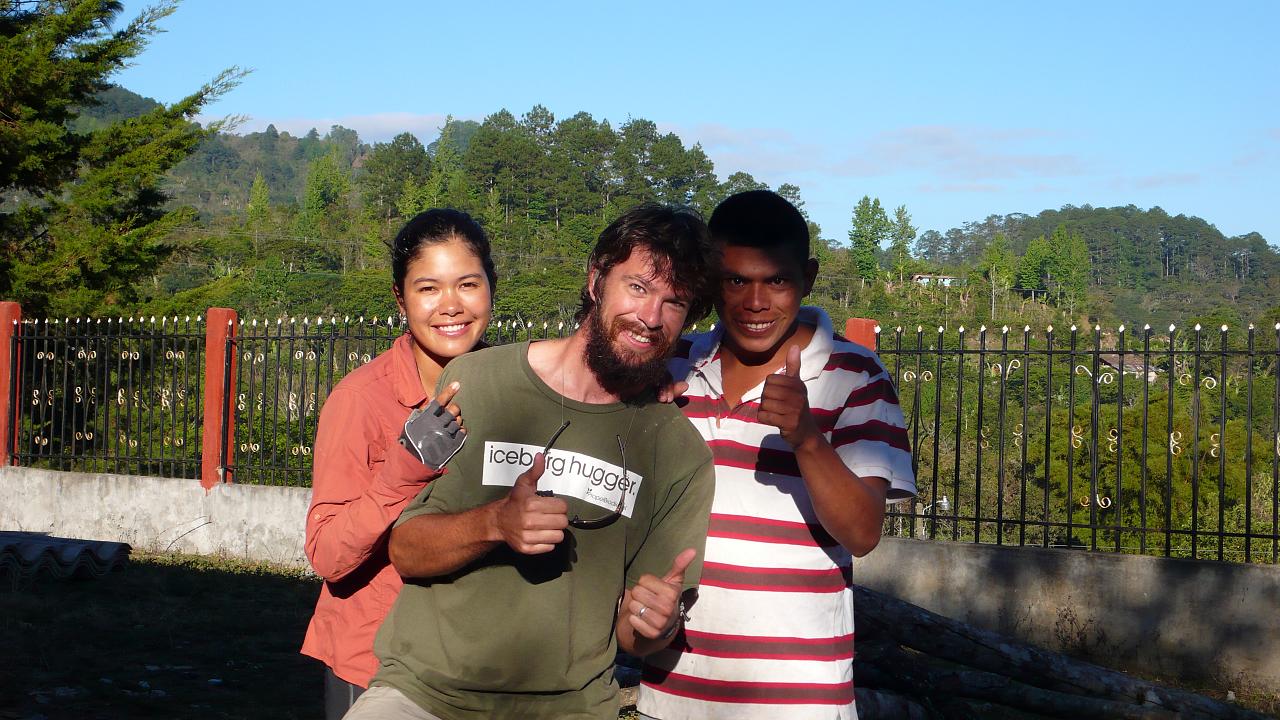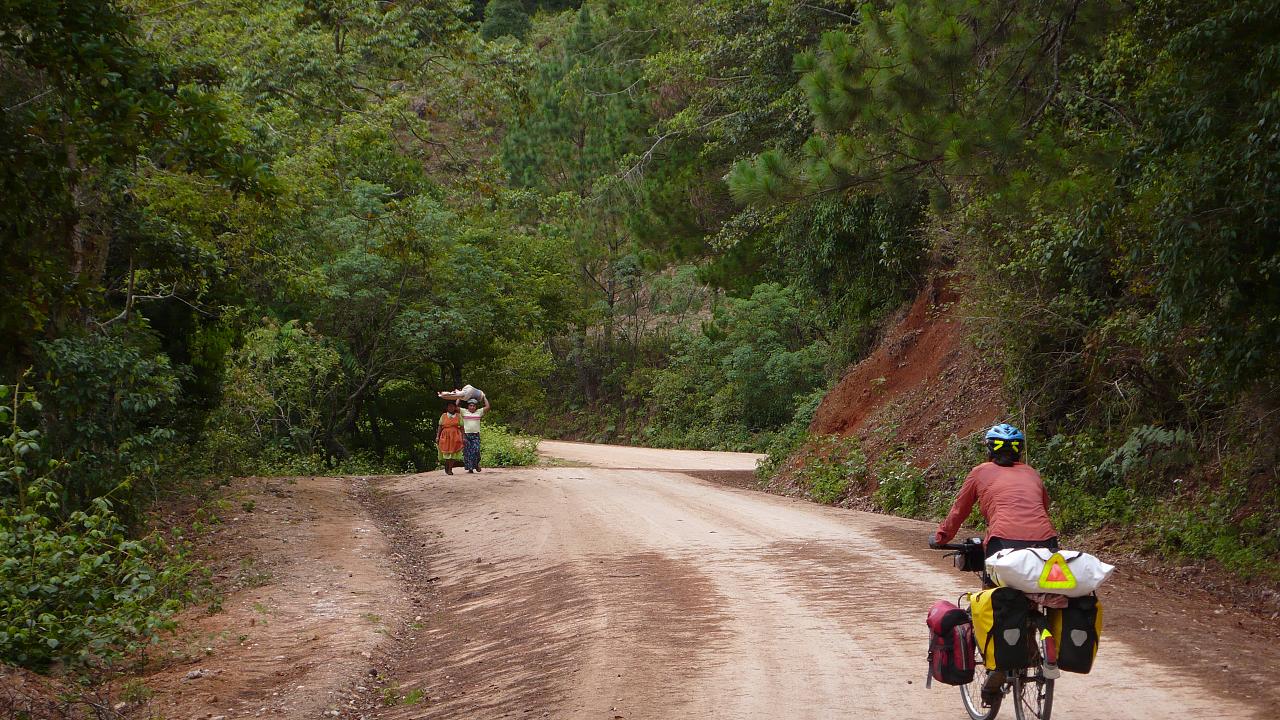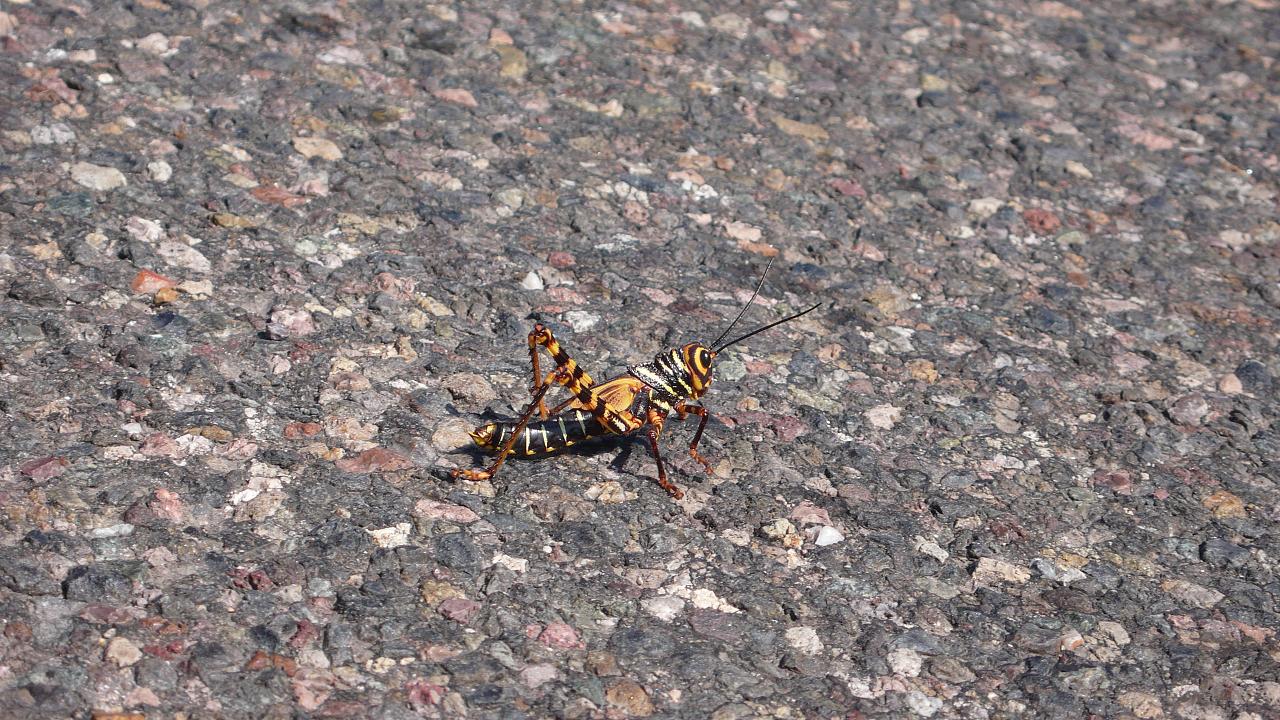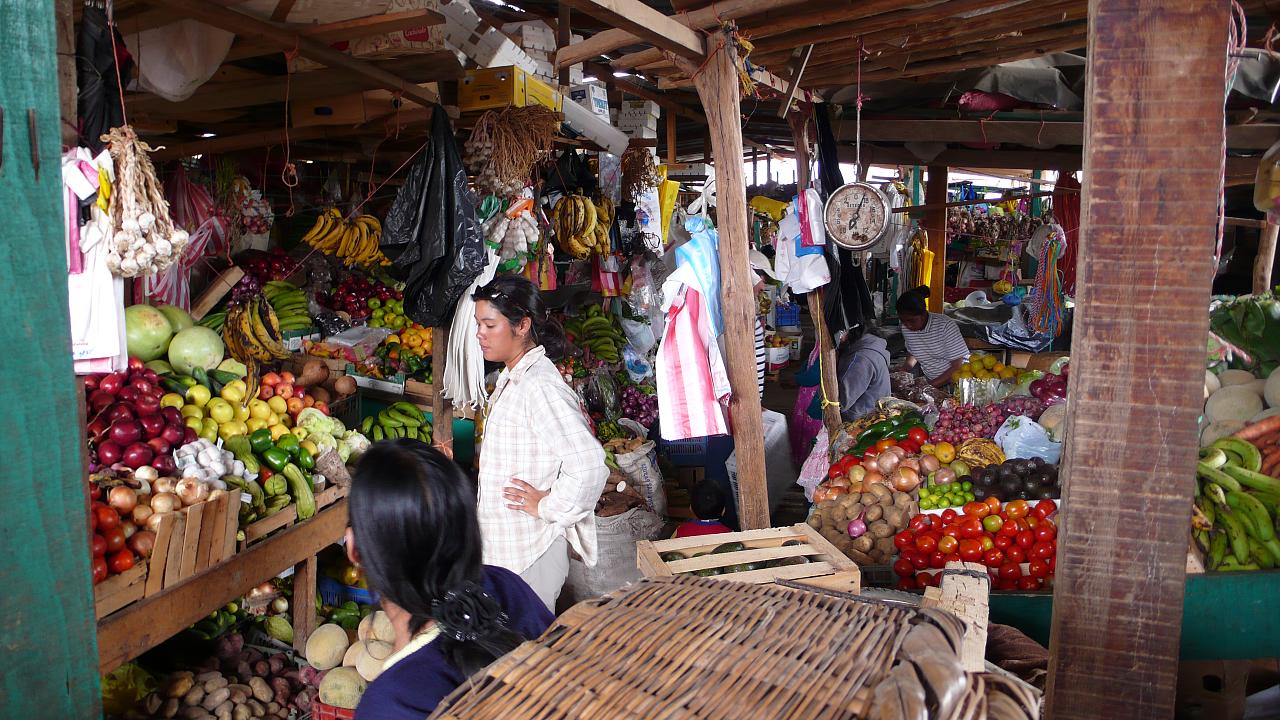 We left La Esperanza for a rolling ride through the hills toward Marcala, the biggest town between Esperanza and Guajiquiro. As we rod along the dirt road we enjoyed the sights that the mountains had to offer as well as the friendly highland people of Honduras. We always enjoy riding the dirt/backroads because it is almost always a more pleasant ride, the scenery is
We left La Esperanza for a rolling ride through the hills toward Marcala, the biggest town between Esperanza and Guajiquiro. As we rod along the dirt road we enjoyed the sights that the mountains had to offer as well as the friendly highland people of Honduras. We always enjoy riding the dirt/backroads because it is almost always a more pleasant ride, the scenery is better, the traffic less, and more wildlife. We were riding through beautiful pine forests in cool piney smelling air, and the sky was an incredible blue, hard to beat. We came to an overlook and sat down for a spell and met a mountain bike out for a ride in his "hood". We talked with him for a bit, shared some water and made the descent into Marcala to have some lunch.
While sitting in the zocalo (central park) and eating lunch we were being stared at (as usual) a woman came up to us and asked us for some money (also not unusual). Usually we can just say, "No sorry," and the beggar will go away. It is never a comfortable situation and one we always try to avoid. But this time the woman, who was clean, well dressed, looked well fed and had just come from the market and had a bag of produce in hand, continued to pester us, telling us that her mother was sick in the hospital, she was hungry, her mother was hungry, she didn't have any money, etc, etc. It is always sad to see someone begging, but this lady seemed to have graduated from the LAPD school of racial profiling with flying colors and was determined to get something from what she deemed the "rich foreigners" and didn't let up. After she figured out we weren't going to give her any money she reduced her plea for food. At this point we were not just being rude by not giving her food, we were really low on food and money after the ATM card didn't work in La Esperanza. After Leah became very frustrated and couldn't tolerate her pestering anymore she very emotionally told her that this food was for our lunch and our dinner and that we couldn't give her any, she reduced her plea to asking for just 2 crackers, which we of course gave her and she went on her way, not bothering anyone else in the park for anything.
These situations, like I mentioned, are not uncommon for us as travelers but they never get any easier to deal with. We feel like jerks for not giving people money, we feel like either suckers or rich assholes when we do give people money, we feel offended that people automatically assume that we should give them money, and we also feel sympathy and heartache as well. Above all of that, we also are bombarded by a looming sense of social responsibility, that it's up to us to do something to help this person or this country. This powerful jumble of emotions is always uncomfortable to deal with and is further shaping OUR reality of what the world is and how we choose to be present in it.
We left Marcala with heavy hearts and minds and began climbing up and up. We had only gone 7km out of town when Leah began to get nervous about finding a place to camp before dark (it was 4:30 by then). We stopped in La Florida to ask how far it was to the next town and everyone told us it was very far, hours by bike. Most people thought that we meant the next town with a hotel and it was hard for us to communicate that we only wanted to know if there
were people living in a place that we could camp at, so, we ended up staying in the aldea
(village) of La Florida for the night. In La Florida, we found a house that had a big yard for us to pitch a tent in. So, we asked someone there if we could do so and he agreed. As we were setting up camp, Alex (the man who agreed to let us stay) offered us the porch to set our tent up on and later invited us in for coffee, conversation, and a kung fu movie in Chinese with Spanish subtitles. We learned a lot about the area from Alex and he was incredibly patient with our Spanish. Alex is a coffee farmer (as are most people in Florida) and sells both organic and conventional coffee to two large corporations, one American and one German. We learned that although organic coffee is much more labor intensive to grow and has a lower yield, the farmers receive the same price for all coffee, organic or not. But, they MUST grow organic
coffee because the German corporation will only buy organic and they can't afford to lose their
business. This didn't make a whole lot of sense to us because when you see the price of organic versus non in the store it doesn't represent this phenomenon. This just goes to show how powerless farmers in developing nations are.


In the morning we headed out for what we anticipated to be a 60km climb to Guajiquiro. Each of the people we met along the way wanted to know where we were headed. The majority of these people were walking, on bikes, on horse or with oxen because we were in the remote hills on dirt roads. We told so many people that we were going to Guajiquiro that it became this elusive place that we thought we'd never get to. Our El Dorado. Before we reached our El Dorado we had to reach "El Triangulo" another place that everyone knew about but no one could tell us how far it was, they just knew that we better be sure to take a left there. We eventually found the triangle and it was well marked and even had a triangle pulperia (little store) in the middle of the triangle. We rode along ridge line for awhile and were treated to expansive views on either sides of us of the surrounding mountains,


countryside, villages, and farms on slopes so steep I wouldn't want to walk up them, let alone harvest. We also highly enjoyed the conversations we had with the people of the area. Simple country people. Laid back, slow-talking, and simple minded people that just wanted to talk with someone or share their knowledge of their land. We talked with one man who was on his way to a nearby aldea and offered him some water. It was apparent that he had never seen a "sport top" pop-up water bottle and we had to show him how to open it. The 60km we anticipated actually ended up being only 45km and the climb wasn't as hard as we had expected either (we must be getting stronger). We kept asking people how much farther we had to go and the kept telling it was so far and so far and then we asked some police we met how much farther and they told us we were already there, a pleasant surprise (we found out later that we were in Guajiquiro the municipality, but not Guajiquiro the town).
We spent some time talking with Wilmer (the police sergeant), and he was hitting us with question after question, it was good to meet someone so interested in so many aspects of our life, life on the road, life in the states. I think we answered questions for a half hour or so before telling him we needed to go eat as we hadn't had lunch yet. We left and started descending toward the town of Guajiquiro and finally laid eyes on it. There it was, gilded in gold. We sat down for a bit to enjoy the view and reflect on our journey through the mountains and have our lunch. A man reined his mule up next to us, very excited to see us. He was very pleased that we were there to see the place and very impressed by our bicycles. We talked with him for a bit and we said our goodbyes and headed off in opposite directions.
We walked through the town pushing our bikes and getting plenty of looks, but not the usual stares, it was obvious that we were in an area that didn't get visited much. Several people asked us if we were here working and we were left pretty confused by this question. We eventually found a good area to camp in front of a building and asked the woman out front for permission. We're not sure whether she was clairvoyant or whether news travels faster than bike travelers because she said (from what we understood) that she knew we were coming and that we had stayed the night before in La Florida. It turns out the building was the only hospedaje in town, but we still aren't sure how she knew we were coming...
We cooked our dinner and had a nice sleep and actually needed our sleeping bags as blankets during the night. In the morning we awoke when a cow kicked the tent as he walked by. After breakfast we found that a one of the local dogs had decided to claim our tent as his territory by marking three of the corners before we caught him. We decided that this was our kind of place and that we wanted to stay another day and go for a walk in the hills, but that's another story altogether...






